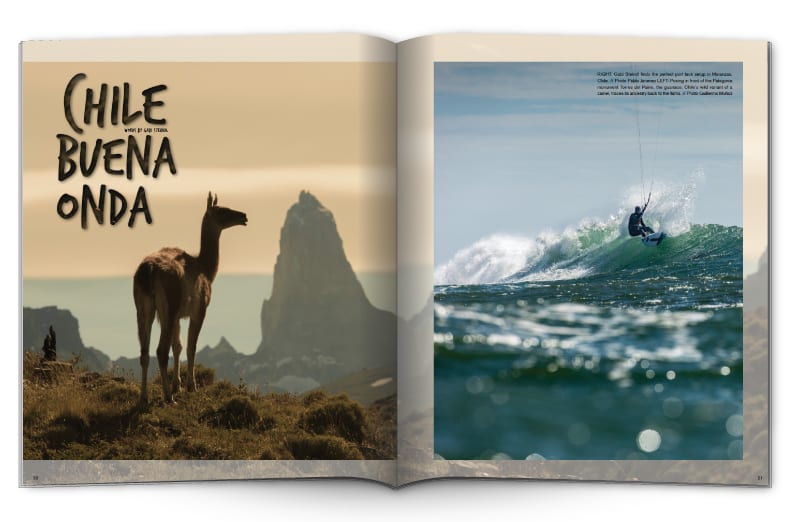Floating in a small South American lineup, waves wash across the cove’s outcropping and the chill of dark water laps up against my 5mm wetsuit as the pulse of an unbroken swell expands across the horizon. Immersed to my torso in 54°F water, I can feel the exhausting stain of 36 hours of air travel slowly eroding away. We’re only a few surfers in the lineup””it’s shortly before sunset and my first surf in Chilean waters””all of which makes the voice erupting from the nearby rocky point sound the deepest of internal alarms. Adrenaline surges as I make out ”˜tiburon,’ the Spanish word for shark. I spot a huge black fin breaking the water’s surface less than a hundred feet away. Before anyone can move, my eyes tighten on the vertical dorsal fin and I exclaim, “es una orca!”
Excitement takes over my fear as I quickly become mesmerized by the rise and fall of the orca’s black dorsal fin. With all my senses fully in the moment, I identify that electrifying buzz that comes from traveling to a new place and experiencing an entirely different part of the world for the very first time. “Welcome to Chile,” I whisper to myself and smile. With over 25,000 miles of wave-rich Pacific Ocean coastline, Chile has been on my bucket list for a while. Having spent three years competing in the early days of the PKRA tour, frequent stops in Brazil and Venezuela sparked a raging infatuation with South America that has long survived the end of my competitive career and 10 years of exploring Australia as a home.
With over 25,000 miles of wave-rich Pacific Ocean coastline, Chile has been on my bucket list for a while. Having spent three years competing in the early days of the PKRA tour, frequent stops in Brazil and Venezuela sparked a raging infatuation with South America that has long survived the end of my competitive career and 10 years of exploring Australia as a home.
As the captain announced the descent into Santiago, the capital of Chile, my nose pressed hard against the plexiglass window of my coach class seat while my tired red eyes scanned the immense peaks and rock formations of the Chilean coastal range. Spanning over six countries, the Andes is the longest continental mountain range in the world and with its vast scale of nature, snowcapped volcanoes and pristine lakes, the view out my window was the best in flight entertainment I could hope for.


